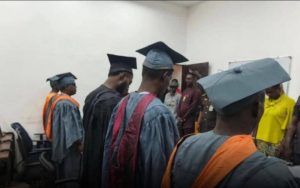By Ikugbadi Oluwasegun
Mr. Taiwo Oyedele, the Chairman of the Presidential Tax Reform Committee, has sounded a warning that if state governments are permitted to collect value-added tax (VAT), it could lead to significant harm for businesses and a decline in the economy.

Oyedele noted that a comparable strategy was tried in the 1980s with sales tax; however, the sub-national governments were unable to generate considerable revenue from it.
He said, “By 1999, we were writing the constitution because we now have the 4th Republic. But what we did was to just replicate the 1979 Constitution.
“In 1979, there was no VAT. So, there was no VAT in the 1979 Constitution.
“However, by 1999, we had implemented VAT for about five years. And it was becoming our top revenue tax. How on earth did we forget to put it in the 1999 Constitution?
“Because it wasn’t stated in the 1999 Constitution, lawyers will state to you that it’s a residual matter.
“Because it’s a residual matter means it belongs to the subnational. That’s why Rivers State and Lagos State have been to court and won.
“If we get a judgment from the Supreme Court today, it will tell you that VAT should be collected and administered by the states. That will be chaotic.
“States will collect less, businesses will suffer, the economy will retrogress.
“On balance, the new reform is meant to treat everybody equitably. Try to get us out of the impression that when you start doing VAT at state level, you make so much money, which is not the case.
“In fact, today, the VAT on imports and international services is actually more than the VAT we collect in Nigeria, within our jurisdiction.
“And that amount that is collected from international services and import VAT is not attributed to any state. It goes into the pool and is shared.
“So, today we shared VAT between and among states based on derivation, 20 per cent; based on equality, 50 per cent; and based on population, 30 per cent we are proposing that correct derivation and share, 60 per cent based on derivation, 20 per cent based on population and 20 per cent based on equality.”


























